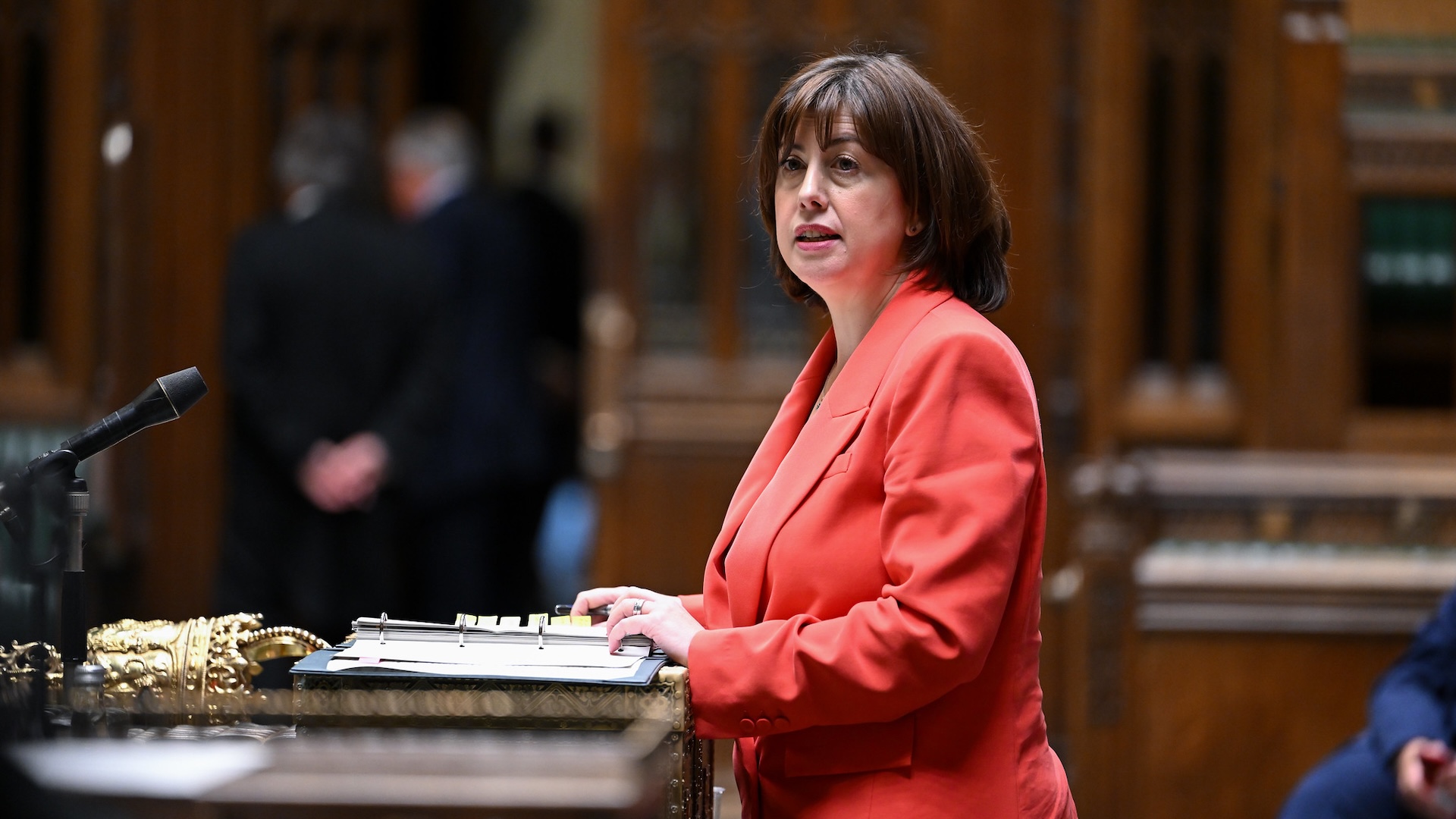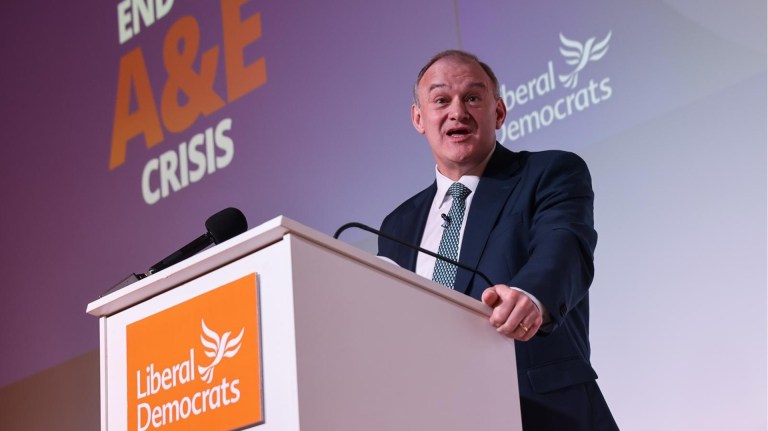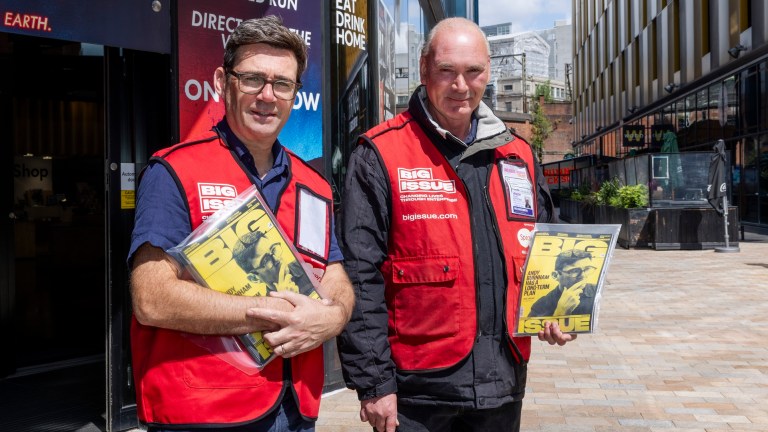Powell was dismissed from her role as leader of the House of Commons in a cabinet reshuffle last month, following the resignation of former deputy prime minister Angela Rayner.
Since the general election, Keir Starmer has lost support from the left and right flanks of his party, and he continues to face declining public confidence while Reform UK gains traction.
That makes the choice of Rayner’s successor crucial – as they will be a key spokesperson for the government moving forward.
Powell believes Labour must tell a “much stronger story about what is really wrong with this country, and how this Labour government is going about fixing that”.
Big Issue questioned Powell about the government’s plans to tackle poverty and homelessness, and we asked her about the ethics of MPs being landlords. Former homelessness minister Rushanara Ali was found to have evicted her tenants and re-let her property at a higher price.
Powell has a lodger but denies being a landlord – although experts dispute this, with Shelter defining a person who rents a room to a tenant in the property where they live as a ‘resident landlord’.
Advertising helps fund Big Issue’s mission to end poverty
The register of interest shows that Powell earns more than £10,000 a year from this, but this is the lowest figure MPs are able to register. Powell claims she earns far less than this but wants to declare it for “transparency” purposes.
Big Issue also asked what Powell would do if she saw a mother stealing baby formula, a question we have previously put to Keir Starmer and Sadiq Khan, who both said they would offer to pay. Powell said she would direct the mother to a food bank or another form of help.
Read our full interview with deputy leadership hopeful Lucy Powell below.
Do you still believe Labour is the party to lift people out of poverty and how do you hope it will do that?
Absolutely. That’s what any Labour government – including this Labour government – is all about. We’ve got an opportunity to clearly articulate that in the forthcoming budget. Lifting the two-child benefit cap is very important. All the evidence tells us what a huge difference that would make in terms of lifting children out of poverty, and that’s why it’s urgent and needs to be done quickly.
Labour’s faced a series of controversies since the general election, such as around welfare cuts. What do you think are the key mistakes that have been made?
Advertising helps fund Big Issue’s mission to end poverty
Obviously there are mistakes that we’ve all admitted to. We’ve changed course on the winter fuel payment and personal independence payments. For a variety of reasons, especially on the personal independence payments, it wasn’t well thought through. The devil’s always in the detail. We couldn’t answer questions like who it would affect.
It was driven by needing to make savings rather than good, long-standing reform. We needed to take our time and do it constructively and collaboratively. It didn’t speak to our values.
One thing I want to help this Labour government do better at going forward is to give a clear sense of whose side we’re on. We need to draw a line under those mistakes and wrong turns of the first year and use the budget and the big platforms we’ve got coming up to set the agenda and show that we are operating in the interests of the many and not the few.
How do you feel about the fact you have been portrayed as Labour party members’ choice to be deputy leader but not the cabinet’s?
Well, look, at the end of the day, this is a choice for members. Members get to decide. That’s always been the case with the deputy leader. It’s a directly elected position and it is a choice of the party membership. That’s something, I think, which is incredibly powerful. I would take it very responsibly.
Do you think that Labour can win an election in four years with rising support for Reform UK?
Advertising helps fund Big Issue’s mission to end poverty
I think this is bigger than an electoral challenge. The future of our democracy, the future of our country, depends on whether we can take these forces on – as the party of the government but also as the Labour Party. We are the party that has always stood against division, hate and the kind of politics espoused by Reform.
We’ve got to step up here. I’ve been calling it ‘grabbing back the political microphone’. Let’s start setting the agenda ourselves with a much stronger story about what is really wrong with this country, and how this Labour government is going about fixing that.
The Labour government has committed to ending homelessness. What would you say to families who are trapped in temporary accommodation for months and years on end? Why should they vote Labour?
I know how tough that is, and I know how difficult it is for people. There is a rising number of those in temporary accommodation and insecure housing. There’s no quick fix. There’s no silver bullet. But look at what we are already embarking on doing.
There is more to come. We recognise more than any other party how important it is to have a secure, stable, affordable home. It’s the bedrock of the rest of your life. We’ve brought in the Renters’ Rights Bill to start taking on some of the vested interests of landlords. We’ve made changes to Right to Buy so we’re not losing much social housing stock.
We’ve got this big investment in social housing, and an ambition to build more homes in general, so we can fix the housing crisis over the coming years. But it’s a hard job, and there’s a lot that needs to be done.
Advertising helps fund Big Issue’s mission to end poverty
Angela [Rayner] was a real champion for these issues, and I want to make sure that those issues are still prioritised without Angela being there. I will take that very seriously, and that’s why I want people to vote in this deputy leadership race.
Another controversy the government faced was around homelessness minister Rushanara Ali and her actions as a landlord. You have spoken about having a lodger before. How do you feel about MPs being landlords and the ethical questions around that?
I mean, to be totally clear, I’m not a landlord. I don’t have a rental property in any shape or form. I have a lodger living with me. I declare it as though it is because I think that’s important for transparency. I share my own flat with another MP. That’s there for public record and, by the way, in doing so, I save the public purse. I pay for all of that myself.
Where you’ve got large scale landlords who are not providing good quality accommodation, or who are hiking up rents, or issuing no-fault evictions just to put the rent up, we’ve got to take that to task.
That’s why the Renters’ Rights Bill is so important, and that will soon become law. Many other people are so-called accidental landlords. I know in my own constituency, for example, people who are unable to sell their flat because of cladding remediation and issues like that, so found themselves with no choice but to rent out the property in order to move.
It’s about taking on bad landlords and making it more affordable for the increasing number of people who need to live in the private rented sector, and getting rid of hidden charges.
Advertising helps fund Big Issue’s mission to end poverty
We’re going to have more and more people living in the private rental sector. It’s absolutely right that we bring in the Renters’ Rights Bill and we continue to look at these issues, because it’s about security, affordability, decent standards and dignity.
What would you do if you saw a mother shoplifting baby formula?
That’s a tough question. It is absolutely awful when people feel that they’ve got no alternative and they can’t afford the basics like baby formula which, by the way, I think is more expensive than it needs to be. In my constituency in Manchester, what I would say to that mother is that we have some incredible food banks who provide, not just baby formula, but nappies and other things. People in crisis need places to go and they need help.
Do you have a story to tell or opinions to share about this? Get in touch and tell us more.
Reader-funded since 1991 – Big Issue brings you trustworthy journalism that drives real change.
Every day, our journalists dig deeper, speaking up for those society overlooks.
Advertising helps fund Big Issue’s mission to end poverty
Could you help us keep doing this vital work? Support our journalism from £5 a month.






